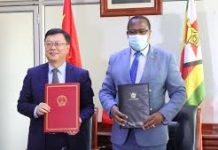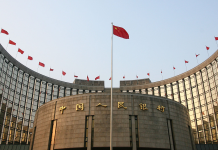On January 11, the National Immigration Administration (NIA) put into effect multiple measures to better facilitate the entry of international visitors.
These measures include a relaxation of the requirements for obtaining visas on arrival and increased access to visa extension, renewal and reissuance services at the exit-entry administrations of local public security organs. This policy covers visitors to China for non-diplomatic and non-official purposes, such as economic and trade cooperation, investment, entrepreneurship, visiting relatives and private matters. Prior to the changes, visitors with visas that relied on an invitation letter needed to visit the exit-entry administration local to the inviting organization in order to extend, renew or reissue them. Visitors can now apply for these services at their nearest exit-entry administration.
Also, passengers transiting to third countries through airports within 24 hours now no longer need to pass through Chinese immigration inspection as long as they remain in the airports’ designated transit areas. The new policy applies to international airports in Beijing, Shanghai, Hangzhou, Xiamen, Guangzhou, Shenzhen, Chengdu and Xi’an.
International visitors already in China requiring a multiple-entry visa may now apply to an exit-entry administration. This policy aims to allow those who frequently travel between their home country and China for collaborations in scientific research and other joint projects to schedule their work more efficiently.
Additionally, visitors whose documentation, including accommodation registration records and business licenses, can be checked through the shared information systems now no longer need to present the physical documents when applying for visas.
Since China embarked on its journey of reform and opening up in 1978, it has introduced many measures to strengthen international personnel exchange. According to the NIA, border inspection agencies across China saw 670 million entry and exit trips in 2019, including more than 97 million by foreigners. However, the outbreak of COVID-19 limited these trips.
In the post-pandemic era, as China’s economy and society continue to recover, companies and individuals with growing needs for international travel have put forward new demands for improving immigration management services. They have made suggestions for better facilitating visits by foreign nationals to China, including more convenient visa processing. The recently unveiled measures aim to respond to these demands.
China is committed to promoting economic globalization and building an open world economy to better benefit the peoples of all countries. To adapt to the recovery of international economic and trade activities and to promote the convenient cross-border flow of personnel, China has been optimizing the policy environment for the entry of international visitors since pandemic prevention and control measures were eased at the beginning of last year.
In July last year, China resumed its unilateral visa-free entry policy for visitors from Singapore and Brunei, and in December, it implemented a unilateral visa-free policy for ordinary passport holders from France, Germany, Italy, the Netherlands, Spain and Malaysia. The list is still growing, with Switzerland and Ireland being the latest additions.
In December 2023, the Central Economic Work Conference, which outlined steps the government will take to steer the country’s economy toward greater efficiency and higher quality in 2024, reiterated the call for expanding high-standard opening up. It was promised at the conference that Chinese authorities will work to resolve difficulties people from other countries may encounter when they come to China for business, studies and sightseeing.
The series of measures adopted to this end are likely to make an impact beyond facilitating inbound tourism and cementing trade and investment bonds. The mobility of people not only is the foundation for globalization and international cooperation, but also helps increase understanding between nations. With traveling to China made easier, hopes are high that more people from around the world will get to know the real China through firsthand experience. –The Daily Mail-Beijing Review news exchange item






